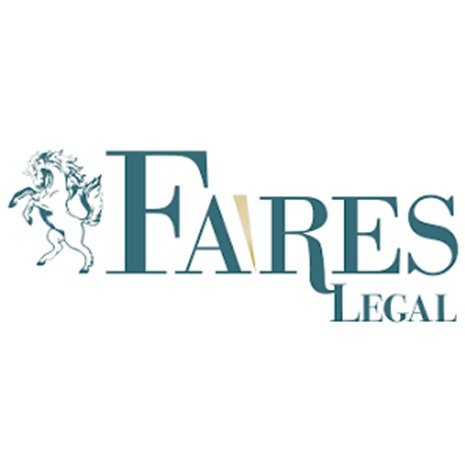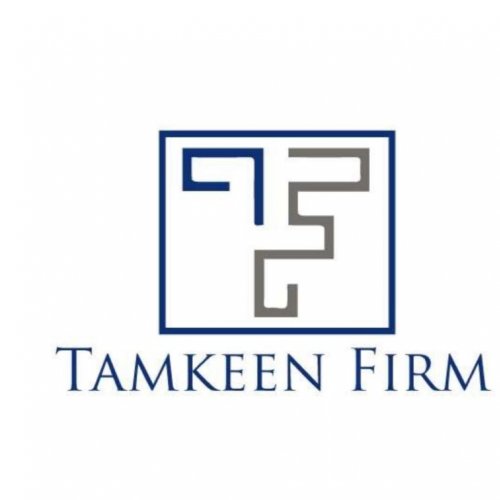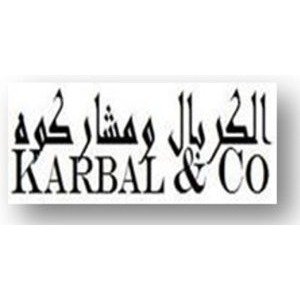Best Sanctions & Export Controls Lawyers in Libya
Share your needs with us, get contacted by law firms.
Free. Takes 2 min.
Or refine your search by selecting a city:
List of the best lawyers in Libya
About Sanctions & Export Controls Law in Libya
Sanctions and export controls in Libya are a complex set of legal regulations designed to govern the movement of goods, services, money, and technology in and out of the country. These measures are often implemented to comply with international obligations, address security concerns, and ensure that national interests are protected. Since the political upheavals starting in 2011, Libya has faced various United Nations, European Union, United States, and other international sanctions. Understanding these regulations is crucial for individuals and businesses involved in cross-border trade or financial transactions related to Libya.
Why You May Need a Lawyer
Legal advice in the field of sanctions and export controls is often needed due to the complex, sensitive, and high-stakes nature of the subject. Common situations where people or businesses may require legal help include:
- Engaging in the import or export of goods and unsure if they are restricted or prohibited
- Making or receiving payments to or from Libyan entities or individuals that may be sanctioned
- Navigating licenses or exemptions for humanitarian activities
- Facing investigations or enforcement actions by Libyan or foreign authorities
- Conducting due diligence on Libyan partners to avoid breaching international sanctions
- Clarifying which international sanctions apply to your activities in Libya
A qualified lawyer can help identify applicable laws, advise on compliance, assist with permit applications, and represent you in disputes or enforcement actions.
Local Laws Overview
Libya’s sanctions and export controls framework is shaped by both domestic and international law. Locally, the Central Bank of Libya (CBL), the Libyan Customs Authority, and various ministries regulate and monitor trade and financial flows. Key aspects include:
- Certain goods, such as weapons, dual-use technology, and luxury items, are subject to strict controls or outright bans
- Financial transactions with countries, entities, or individuals on sanctions lists require special authorization or are prohibited
- Non-compliance with export controls may result in heavy fines, criminal liability, or seizure of goods
- Several international sanctions regimes apply in Libya, especially regarding arms embargoes, asset freezes, and travel bans
- Regular updates to sanctions lists mean obligations can change rapidly, requiring ongoing compliance checks
Frequently Asked Questions
What are the main types of sanctions affecting Libya?
Libya is affected by United Nations Security Council, United States, European Union, and individual country sanctions. These include arms embargoes, asset freezes, travel bans on individuals, restrictions on oil exports, and controls on financial transactions.
Who enforces sanctions and export controls in Libya?
Sanctions are enforced by Libyan authorities including the Central Bank of Libya, the Ministry of Economy and Trade, and the Libyan Customs Authority. International bodies and foreign governments also monitor and enforce their own sanctions related to Libya.
Which goods are typically restricted or controlled?
Weapons, military equipment, dual-use technologies, luxury goods, and certain petroleum products are commonly restricted. Medicines and humanitarian supplies may be exempt in some cases.
Do international sanctions apply to Libyan businesses?
Yes, international sanctions can affect Libyan businesses, especially if they deal with foreign partners or use the international banking system. Libyan companies must ensure they do not violate foreign sanctions, which may lead to penalties or blacklisting.
How can I apply for an export license or exemption?
Export licenses or exemptions can be sought from relevant Libyan authorities, such as the Ministry of Economy or the Customs Authority. Requirements depend on the specific goods or services and may involve background checks and end-use monitoring.
What are the risks of violating sanctions or export controls?
Violations can lead to severe consequences, including fines, imprisonment, seizure of goods, loss of business licenses, and reputational damage. International violators may face additional penalties abroad.
Are humanitarian activities exempt from sanctions?
Humanitarian aid is often exempt from certain sanctions, but donors and NGOs must seek proper authorizations and ensure compliance with both Libyan and international regulations.
Can foreign citizens be held liable under Libyan sanctions laws?
Yes, anyone operating within Libyan jurisdiction or engaging in Libyan-related transactions may be subject to local sanctions laws, regardless of nationality.
How often do sanctions regulations change?
Sanctions lists and regulations can change frequently, especially in response to political developments. Regularly monitoring official announcements is necessary to remain compliant.
Where can I find official information on sanctions and export controls in Libya?
Official information may be found on the websites of Libyan government agencies such as the Central Bank, Customs Authority, and international bodies like the UN or EU. Legal professionals specializing in sanctions law are also key sources of updated guidance.
Additional Resources
If you need further guidance or official information, the following resources may be helpful:
- Central Bank of Libya - For guidance on financial restrictions and asset freezes
- Libyan Customs Authority - For rules on import and export of goods
- Ministry of Economy and Trade - For export licenses and business regulations
- Office of the United Nations Sanctions Committee on Libya - For current UN measures
- European External Action Service - For EU sanctions information
- Specialized Libyan legal consultancies - For tailored legal advice
Next Steps
If you believe your activities may fall under sanctions or export controls, or if you have been contacted by authorities, it is critical to seek experienced legal assistance promptly. Taking the following steps can help ensure your compliance and minimize risks:
- Gather all relevant documents related to your transactions and business relationships
- Consult a lawyer with expertise in sanctions and export controls, either locally or internationally
- Request a compliance review or legal opinion before proceeding with any potentially risky transaction
- Stay informed by subscribing to updates from official sources and legal professionals
- Implement internal policies and training to ensure ongoing compliance if you operate a business
Being proactive about legal compliance in sanctions and export controls not only protects you from penalties but also helps foster trust with partners and authorities.
Lawzana helps you find the best lawyers and law firms in Libya through a curated and pre-screened list of qualified legal professionals. Our platform offers rankings and detailed profiles of attorneys and law firms, allowing you to compare based on practice areas, including Sanctions & Export Controls, experience, and client feedback.
Each profile includes a description of the firm's areas of practice, client reviews, team members and partners, year of establishment, spoken languages, office locations, contact information, social media presence, and any published articles or resources. Most firms on our platform speak English and are experienced in both local and international legal matters.
Get a quote from top-rated law firms in Libya — quickly, securely, and without unnecessary hassle.
Disclaimer:
The information provided on this page is for general informational purposes only and does not constitute legal advice. While we strive to ensure the accuracy and relevance of the content, legal information may change over time, and interpretations of the law can vary. You should always consult with a qualified legal professional for advice specific to your situation.
We disclaim all liability for actions taken or not taken based on the content of this page. If you believe any information is incorrect or outdated, please contact us, and we will review and update it where appropriate.
Browse sanctions & export controls law firms by city in Libya
Refine your search by selecting a city.











